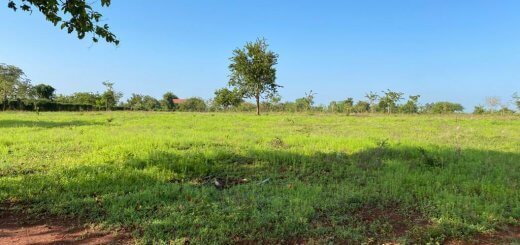The Impact of Infrastructure Projects on Property Value in Kenya: Driving Growth and Investment
Kenya’s real estate market has experienced significant growth over the past two decades, largely fueled by infrastructure development. From roads and railways to energy projects and urban upgrades, infrastructure plays a pivotal role in shaping property markets. The impact of infrastructure projects on property value in Kenya is evident across cities, towns, and rural areas, driving demand and creating opportunities for investors, developers, and homeowners alike. As Kenya continues to invest in transformative projects, understanding this relationship is key to making informed real estate decisions.
How Roads and Highways Influence Property Values
Road networks are among the most critical infrastructure projects influencing property values in Kenya. Major road upgrades and new highways create accessibility, reduce travel times, and enhance connectivity between urban centers and rural areas. These factors directly impact property prices in areas surrounding these developments.
Take, for example, the Nairobi Expressway, which has revolutionized travel across the city. Properties near the highway, particularly in neighborhoods like Mlolongo and Syokimau, have seen significant appreciation in value. Improved access to key economic zones has attracted businesses and residents, boosting demand for commercial and residential properties alike.
The ripple effect is not limited to major cities. In counties like Machakos and Kajiado, newly constructed or upgraded roads have turned previously remote areas into viable real estate hotspots. Investors are increasingly targeting these regions, anticipating further gains as infrastructure projects improve livability and access.

impact of infrastructure projects on property value
The Role of Rail and Transit Projects
Kenya’s railway network, particularly the Standard Gauge Railway (SGR), has been a game changer for both transportation and property markets. The SGR has connected Nairobi, Mombasa, and other regions, easing movement for goods and passengers. This development has significantly influenced property values in towns along its route, such as Athi River, Voi, and Naivasha.
The impact of infrastructure projects on property value becomes even more pronounced when rail projects are paired with complementary initiatives, such as new industrial parks or commercial hubs. For instance, areas around the Naivasha Inland Container Depot have become attractive for both logistics companies and residential developers. Proximity to such infrastructure not only boosts land prices but also creates long-term potential for sustained growth.
Energy Projects and Property Markets
Reliable energy supply is a cornerstone of modern living and economic growth. Kenya’s investment in energy infrastructure, including geothermal power plants, wind farms, and expanded electricity grids, has had a profound effect on property markets. Regions that once struggled with power shortages, such as parts of Turkana and Kajiado, are now seeing increased investor interest as energy projects improve living standards and support industrial activities.
Renewable energy projects also play a role in making certain regions more attractive. For example, the Lake Turkana Wind Power project has not only enhanced energy security but has also sparked interest in nearby properties for businesses and workers relocating to the area.
Urban Upgrades and Real Estate Development
Urban renewal initiatives in cities like Nairobi, Kisumu, and Mombasa demonstrate the impact of infrastructure projects on property value within metropolitan settings. Upgrades to sewer systems, street lighting, and public spaces can transform neighborhoods, attracting middle-class families and young professionals.
For example, Nairobi’s ongoing efforts to improve drainage and beautify streets in areas like Upper Hill and Kilimani have elevated these neighborhoods into high-demand zones for residential and commercial property. Mixed-use developments, often located in such upgraded areas, capitalize on infrastructure improvements, offering premium pricing due to enhanced appeal.
Similarly, waterfront developments in Mombasa and Kisumu are drawing attention from developers and buyers alike. These projects often include high-end apartments, retail spaces, and leisure facilities, benefiting from both natural attractions and improved urban infrastructure.
Challenges in Harnessing Infrastructure Gains
While the benefits are clear, realizing the impact of infrastructure projects on property value is not without challenges. Delayed construction timelines, corruption, and poor planning can dampen the positive effects of infrastructure investments. For instance, stalled road or rail projects can leave nearby property owners in limbo, unable to capitalize on anticipated value increases.
Environmental concerns also come into play. Large-scale projects like dams or industrial parks can sometimes lead to displacement or degradation of local ecosystems, negatively impacting surrounding properties. It is crucial for policymakers and developers to strike a balance between infrastructure growth and sustainability.
Future Prospects and Opportunities
Kenya’s Vision 2030 has outlined ambitious goals for infrastructure development, including plans for smart cities, expanded transport networks, and increased energy access. These projects promise to drive further appreciation in property values across the country.
One notable project is the Konza Technopolis, often referred to as Kenya’s Silicon Savannah. Situated just outside Nairobi, this smart city aims to attract tech companies, research institutions, and residential developments. The anticipated growth in the area is a prime example of how the impact of infrastructure projects on property value can shape entirely new markets.
Similarly, projects such as the Lamu Port-South Sudan-Ethiopia Transport (LAPSSET) corridor are poised to open up new frontiers in northern Kenya, boosting the economic potential of previously underdeveloped regions. As infrastructure continues to expand, investors should closely monitor these developments for opportunities to maximize returns.
Conclusion
Infrastructure projects are at the heart of Kenya’s real estate evolution, providing the foundation for urbanization, economic growth, and improved living standards. From roads and railways to energy and urban upgrades, the impact of infrastructure projects on property value is profound and multifaceted. These developments not only enhance accessibility and functionality but also create opportunities for long-term investment and community growth.


